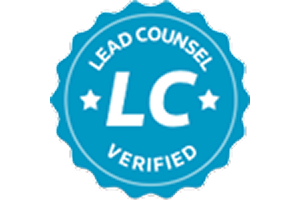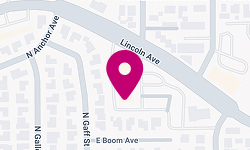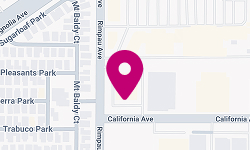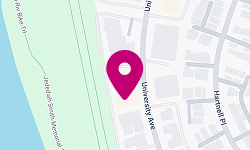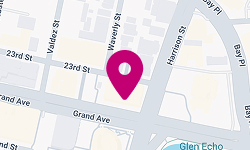- Free Consultation: (888) 883-6588 Tap Here To Call Us
How California Legislation Protects Pregnant Employees From Leave Of Absence Law Violations
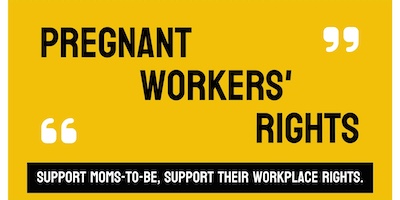
Pregnancy is an exciting yet challenging time, and the last thing any pregnant employee should worry about is whether their rights at work will be protected. California has some of the strongest protections for pregnant employees in the nation, ensuring that individuals can take the time they need for pregnancy-related medical care, recovery, and bonding with their newborn. Unfortunately, not all employers adhere to these laws, and violations of leave of absence rights can cause significant stress and financial hardship. As an attorney committed to defending employees, I want to help you understand your rights and what you can do if your employer fails to honor them.
California law ensures that pregnant employees have access to leave for medical reasons, childbirth, and bonding time without fear of retaliation or job loss. These protections are grounded in key statutes such as the California Family Rights Act (CFRA), Pregnancy Disability Leave (PDL) under the Fair Employment and Housing Act (FEHA), and the California Paid Family Leave (PFL) program. Employers who violate these rights can be held accountable, and employees have legal recourse to seek compensation for the harm caused.
Understanding Pregnancy Disability Leave (PDL)
Under California Government Code § 12945, Pregnancy Disability Leave (PDL) allows employees to take up to four months of job-protected leave for pregnancy-related disabilities. This includes leave for medical conditions such as severe morning sickness, complications during pregnancy, recovery from childbirth, and any other pregnancy-related medical needs.
Key features of PDL include:
- Eligibility – All employees working for an employer with five or more employees are eligible, regardless of how long they’ve been employed or the number of hours worked.
- Duration – Employees may take up to four months of leave per pregnancy.
- Job Protection – Employers must guarantee an employee’s position or a comparable role upon return.
- Reasonable Accommodations – Employers must provide reasonable accommodations, such as modified duties or a transfer to a less strenuous position, if medically necessary.
The California Family Rights Act (CFRA)
The California Family Rights Act (CFRA), found under California Government Code § 12945.2, provides additional protections for employees after the birth of a child. CFRA allows eligible employees to take up to 12 weeks of job-protected leave for bonding with a newborn or caring for a newly adopted or foster child.
Key distinctions of CFRA include:
- Eligibility: Employees must have worked for their employer for at least 12 months and logged at least 1,250 hours in the year before their leave.
- Separate From PDL: CFRA leave is separate from PDL, meaning an employee can take four months of PDL for pregnancy-related conditions followed by 12 weeks of CFRA leave for bonding time.
Paid Family Leave (PFL) Benefits
While PDL and CFRA provide job-protected leave, they do not require employers to pay employees during their absence. However, California’s Paid Family Leave (PFL) program offers partial wage replacement for eligible employees during bonding leave. PFL provides up to eight weeks of benefits, funded through state disability insurance (SDI) contributions.
Common Leave Of Absence Violations
Employers sometimes fail to comply with California’s comprehensive leave laws, which can lead to serious violations. Examples of common violations include:
- Firing or retaliating against an employee for taking leave.
- Denying an employee’s request for PDL or CFRA leave.
- Refusing to reinstate an employee to their previous or comparable position after returning from leave.
- Failing to provide reasonable accommodations for pregnancy-related conditions.
- Misclassifying an employee to deny them leave eligibility.
Legal Remedies For Leave Of Absence Violations
If your employer has violated your leave of absence rights, you have the option to take legal action. Remedies may include:
- Back Pay.
- Reinstatement.
- Emotional Distress Damages.
- Attorney’s Fees and Costs.
- Punitive Damages.
How An Attorney Can Help
Protecting your rights under California’s leave of absence laws often requires legal intervention. An experienced attorney can:
- Review your case and determine if your employer violated the law.
- Help you gather evidence, such as medical records, employment documents, and communications with your employer.
- File a complaint with the California Civil Rights Department (CRD) or pursue a lawsuit in civil court.
- Negotiate with your employer for a settlement or advocate for you in court to achieve a favorable outcome.
Pregnancy Disability Leave Frequently Asked Questions
What is pregnancy disability leave in California?
Pregnancy Disability Leave (PDL) allows employees to take up to four months of job-protected leave for pregnancy-related medical conditions, such as severe morning sickness, complications, or recovery from childbirth. This leave is guaranteed under California Government Code § 12945 and applies to employers with five or more employees.
Am I entitled to paid leave during pregnancy disability leave?
PDL itself does not require employers to pay you during your leave. However, you may be eligible for partial wage replacement through California’s State Disability Insurance (SDI) program or Paid Family Leave (PFL) benefits.
Can I take both pregnancy disability leave and bonding leave?
Yes, you can take both PDL and bonding leave under the California Family Rights Act (CFRA). PDL allows up to four months of leave for pregnancy-related conditions, and CFRA provides an additional 12 weeks of job-protected bonding leave after childbirth.
What should I do if my employer denies my request for leave?
If your employer denies your request for leave, you should document the denial, including any written or verbal communications. Contact an attorney immediately to review your case and determine if your rights under California law have been violated.
Can my employer fire me while I am on pregnancy leave?
No, California law prohibits employers from firing or retaliating against employees for taking pregnancy-related leave. If your employer terminates your employment while you are on leave, they may be violating state law, and you could be entitled to compensation.
What are reasonable accommodations for pregnancy-related conditions?
Reasonable accommodations may include modified work duties, schedule changes, or temporary reassignment to a less strenuous position. Employers are required to provide these accommodations under California Government Code § 12945, provided they do not impose an undue hardship.
What should I do if my employer retaliates against me for taking leave?
If your employer retaliates against you for taking leave, document the incidents, including any changes in your job duties, disciplinary actions, or termination. Consult an attorney to discuss your legal options and potential remedies.
Call Our California Leave of Absence Violation Lawyer For A Free Consultation
If you believe your employer has violated your leave of absence rights during pregnancy, you don’t have to face this alone. At Law Office of Joseph Richards, P.C., we are dedicated to protecting employees across California from workplace violations. Our firm will work tirelessly to ensure your rights are upheld and help you recover the compensation you deserve.
If you believe you are being paid unfairly, contact our California leave of absence violation lawyer by calling our office at (888) 883-6588 to receive your free consultation.. We represent clients throughout California, and we are here to provide the guidance and support clients need during this challenging time.

















